In the wake of both COVID-related disruptions and its own 25th anniversary, the interior design practice is letting the market know why its knowledge-led approach is the way of the future.

PTID Work Hub.
July 25th, 2022
A boutique interior design practice with offices in Sydney and Melbourne, PTID has made its name for a range of successful projects like the award-winning Australian Road Research Board Port Melbourne office; Gucci’s renovated Sydney flagship store; and Studiofive, a teaching, research and engagement centre at the Melbourne Graduate School of Education.
Having recently celebrated its 25th anniversary and having, like the rest of us, emerged from the pandemic-related disruptions of the past couple of years, the practice has decided to reposition itself – not so much in terms of approach or its core areas of design-focus, but more in the way it presents itself to the world.
“For most people, the pandemic was a deep time of reflection – we used that time to think about how we wanted to express ourselves in a new way to the market and better articulate our values,” says Cameron Harvey, director at PTID. “The rebrand is a way to be proud of our approach and what we have achieved.”
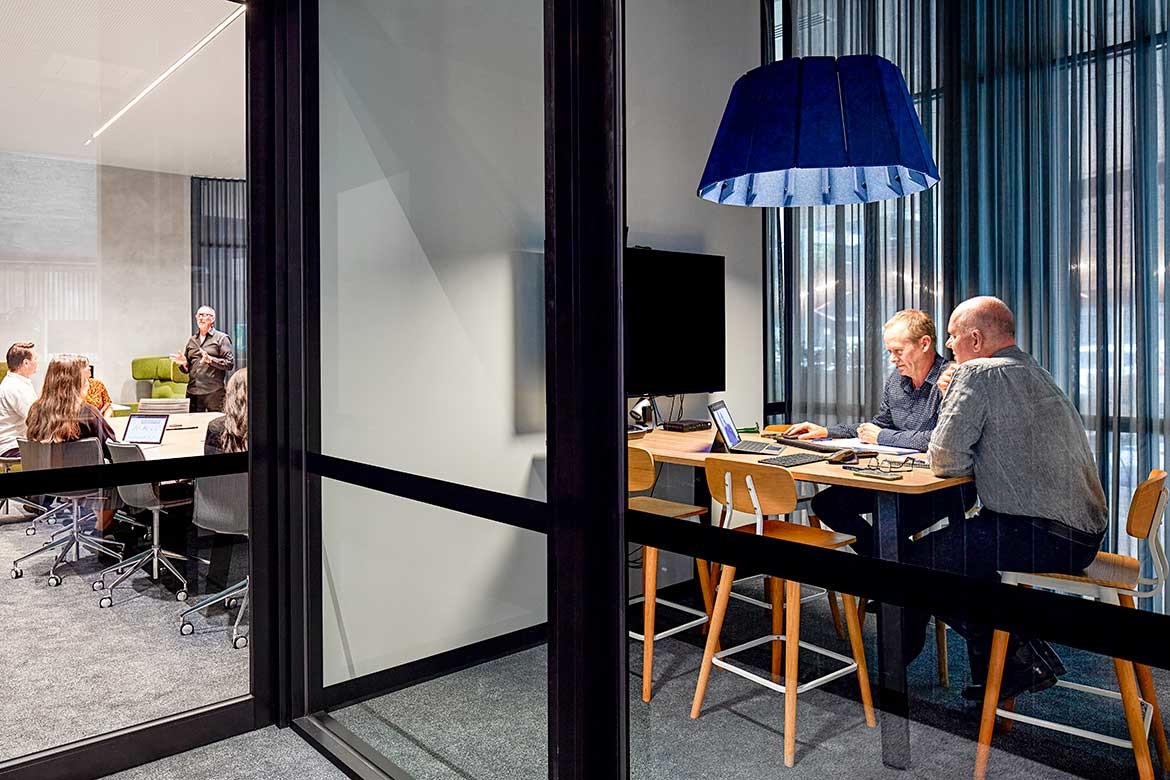
As Harvey explained, over its quarter century of operation, PTID has developed expertise across seven key sectors, namely education, experience, industrial, regeneration, retail, wellbeing, and workplace. Within the organisation, across these seven sectors, separate leaders have emerged; people who have become experts in their field and are therefore well-placed to push the envelope in terms of ideas and innovation.
This is what the repositioning of PTID is all about — letting the market know about this knowledge-led approach to design as a point of difference for the organisation. As Harvey puts it, “Our people and the expertise of our team is at the heart of the rebrand of PTID. For each sector, there is a different leader who we connect with our clients.”
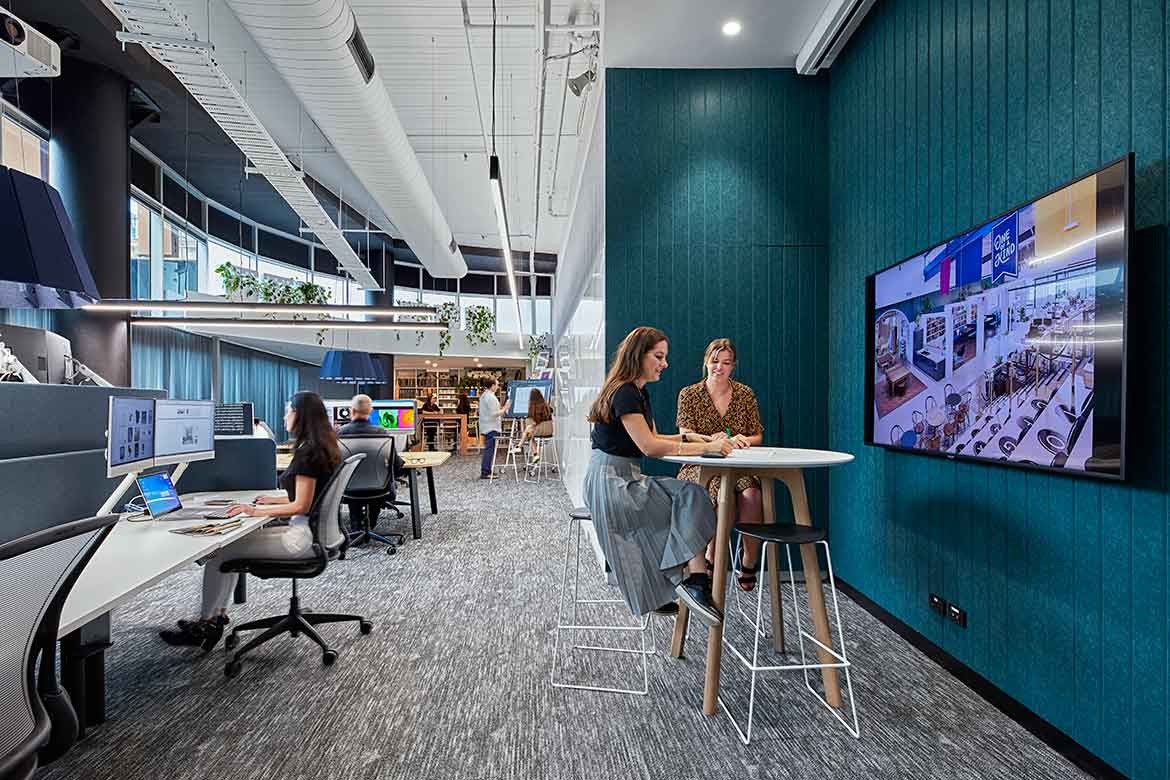
Re-imagined office space
On top of that, in more concrete terms, PTID has also altered its Sydney and Melbourne studios and modified its workplace culture. Mindful of how the above-mentioned lockdowns have shifted our understanding of notions like the workplace, the home, and how these have begun to overlap and intersect, the practice has re-imagined its offices as ‘Workhubs’.
Along with the requisite technology, agile desk sharing, and so forth, Harvey says the focus is on making the workplace a more attractive option. The thinking here is that on those days when staff are there, the experience should as positive as possible.

To this end, PTID has introduced things like the ‘PTID Operating Rhythm’, which is a series of events – including everything from formal lectures and workshops to social events – which are intended not just to educate and inspire staff but also to mark regular days when everyone is present and together. Similarly, the ‘PTID Bloom’ wellbeing program brings employees together for fun, physical activities.
“These events give people a sense of when they should be in the physical workplace and create a buzz. It’s important to create a rich employee experience that nourishes the brain and soul to encourage people to come into the workplace. We want to bring people together,” says Harvey.

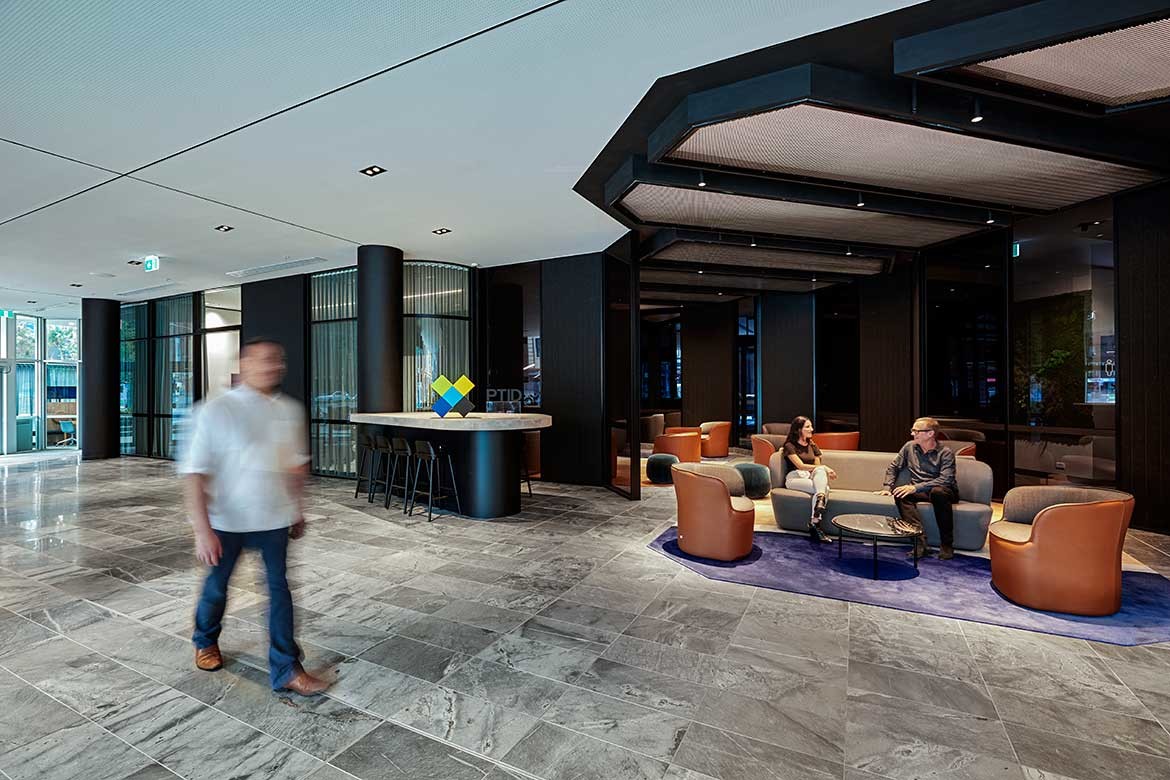
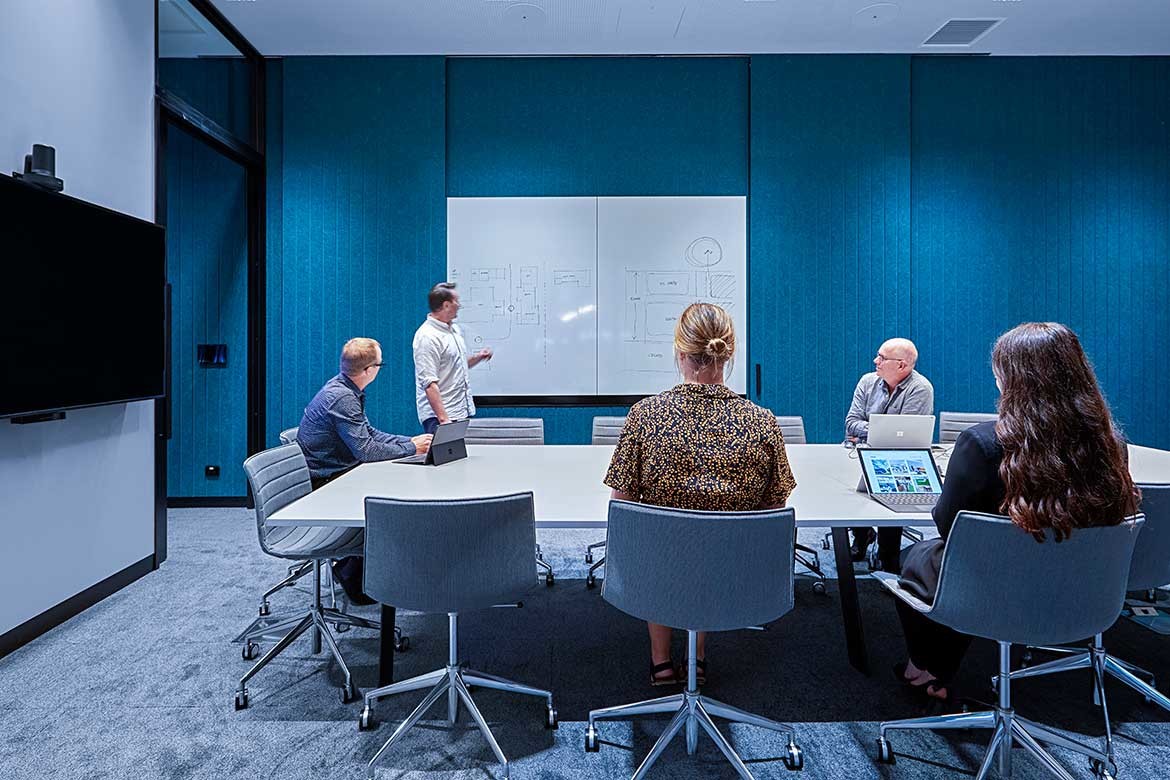
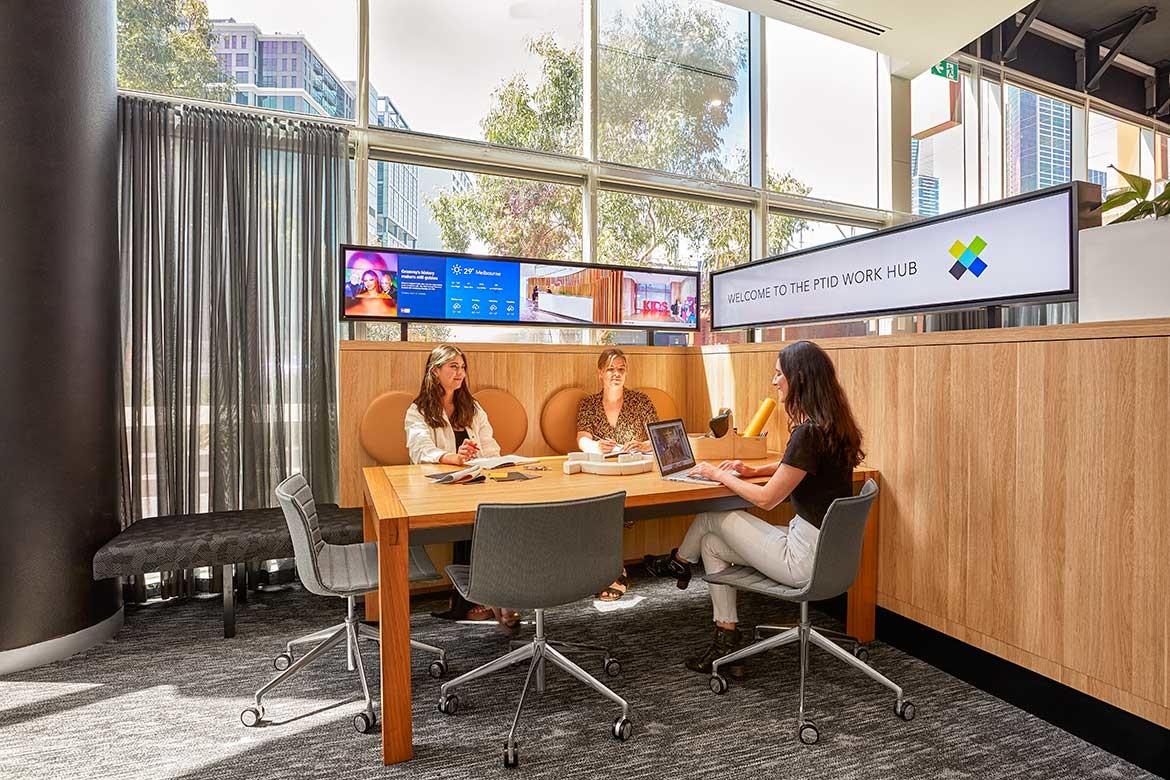
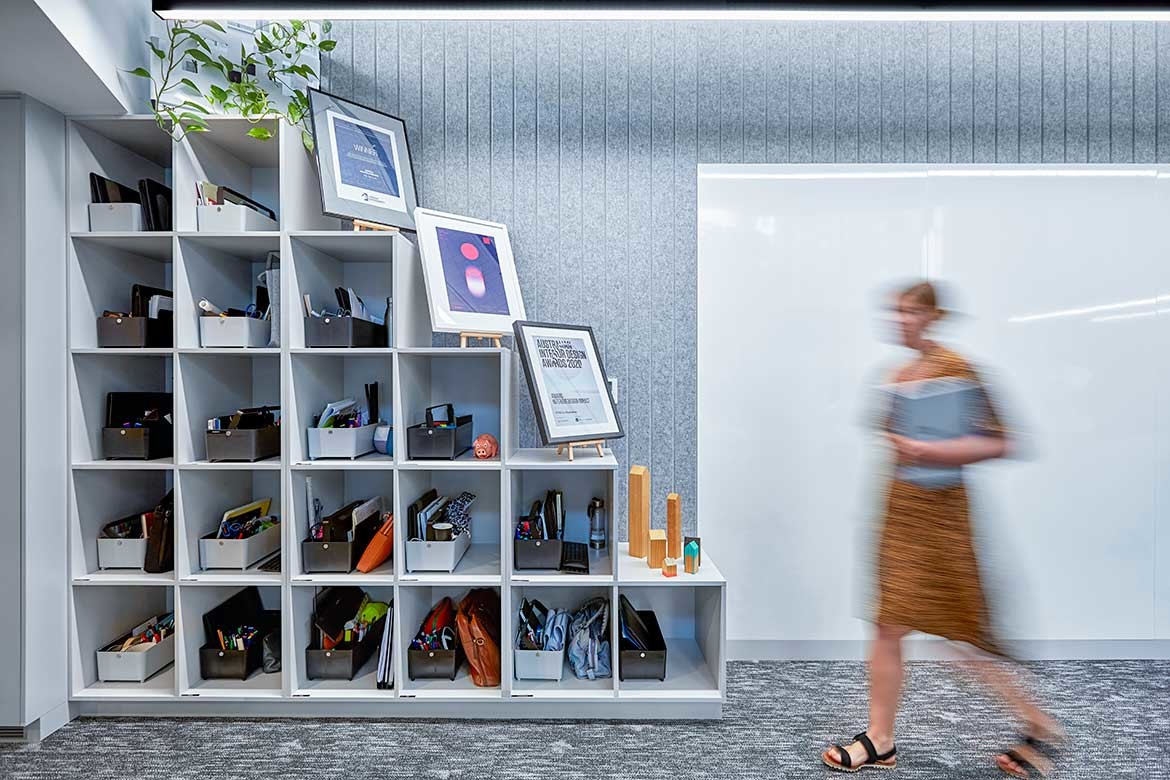
INDESIGN is on instagram
Follow @indesignlive
A searchable and comprehensive guide for specifying leading products and their suppliers
Keep up to date with the latest and greatest from our industry BFF's!

BLANCOCULINA-S II Sensor promotes water efficiency and reduces waste, representing a leap forward in faucet technology.

To honour Chef James Won’s appointment as Gaggenau’s first Malaysian Culinary Partner, we asked the gastronomic luminaire about parallels between Gaggenau’s ethos and his own practice, his multidimensional vision of Modern Malaysian – and how his early experiences of KFC’s accessible, bold flavours influenced his concept of fine dining.

In design, the concept of absence is particularly powerful – it’s the abundant potential of deliberate non-presence that amplifies the impact of what is. And it is this realm of sophisticated subtraction that Gaggenau’s Dishwasher 400 Series so generously – and quietly – occupies.

Within the intimate confines of compact living, where space is at a premium, efficiency is critical and dining out often trumps home cooking, Gaggenau’s 400 Series Culinary Drawer proves that limited space can, in fact, unlock unlimited culinary possibilities.

Andrea Mulloni is the head of sustainability at furniture manufacturer, Arper. With a particular emphasis on the evolving Catifa Carta chair, we chatted to him at Arper’s stand during Milan Design Week.

Helen Oakey is CEO of Renew and, with Sustainable House Day 2025 upon us, she talks to us about the climate crisis and what people can do at the scale of the home.
The internet never sleeps! Here's the stuff you might have missed

Trent Jansen shares his collaborative philosophy and passion for culturally connected design, speaking to the importance of storytelling, heritage and co-creation in his practice and award-winning project.

The Melbourne-based interior decorator mixes vintage pieces with botanical accents in Capella Singapore’s most exclusive dwellings.